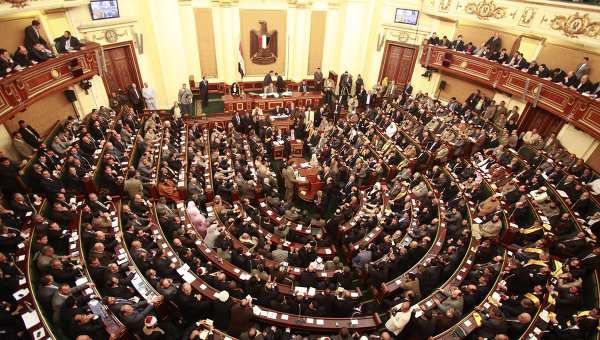SULAIMANIYA: Protests sweeping North Africa and the Middle East have transformed Iraq’s Kurdish region, where an angry public is awakening to political life beyond the authoritarian leaders once seen as heroic liberators.
In other parts of Iraq, protests inspired by the uprisings in Egypt and Tunisia have tapered off over the past month.
In Kurdistan, where two political parties have jointly dominated public life for two decades, demonstrators have remained steadfast, camping out for more than a month in a square in the region’s second-largest city, Sulaimaniya.
At least nine people have died, including two members of the "Peshmerga," the two ruling parties’ former guerrilla armies which are now the region’s official security forces.
Many Kurds say it is the first time they have been able to envisage a Kurdistan that does not revolve around the parties, whose epic struggle against dictator Saddam Hussein dominated Kurdish culture as much as their patronage dominated politics.
"What is happening now in Kurdistan is a radical change in the Kurdish political landscape," said Bachtyar Ali, whose 1992 poetry collection "Sin and the Carnival" and magical realist novels marked a Kurdish cultural renaissance that flowered after the region broke free of Saddam’s grip in 1991.
"We are abandoning the classic form of 20th century governance which indoctrinated us with the notions that ideologies, parties and the president were all sacred," he told Reuters. "We will certainly never return to pre-February 17th Kurdistan," he added, referring to the first day of protests.
Boom not shared
President Massoud Barzani’s KDP party and its sometime rivals, the PUK of Iraqi President Jalal Talabani, have been revered as founding national liberation movements since the US-led Gulf War against Saddam in 1991, when their fighters secured de facto independence shielded by a Western no-fly zone.
It was the first time the Kurdish people — who have also fought for autonomy in Turkey, Iran and Syria — had ever secured control of the apparatus of a modern state.
The two parties’ rival Peshmerga units fought each other in a civil war in the 1990s, but since Saddam was toppled in 2003 they have held to a deal dividing power between them.
The region has flourished as the only part of Iraq spared the ethnic and sectarian war of the last eight years. Sulaimaniya and regional capital Arbil have seen building booms.
Baghdad gives the Kurdish regional government near-total autonomy and 17 percent of Iraq’s oil wealth, an annual budget of about $11 billion for a region of some 4.5 million people.
Foreign investors have arrived en masse, including more than 40 oil companies negotiating deals with the Kurdish authorities, even though rules have yet to be set for how to share export revenues from Kurdish oil with Baghdad.
But many Kurds complain that they have seen little of the new wealth. Far too much power has been concentrated in the hands of the parties, and their duopoly has allowed corruption to run rampant and dissent to be stifled, protesters say.
Sulaimaniya’s protesters have been chanting "down, down, down with the authorities," echoing slogans heard across North Africa and the Middle East this year.
Protests have been more tense and bloodier in less-developed towns such as Chamchamal, Kalar and Halabja — notorious site of a poison gas attack by Saddam’s forces in 1988. At times they have taken on the character of a class struggle, with poor protesters demanding clean water, electricity and jobs.
Foreign investors complain too. Khalil Shocair, general manager of Green House, a Jordanian firm which has provided 70 percent of Sulaimaniyah’s greenhouses since 2003, said business deals require the blessing of one of the ruling parties.
"If you don’t have the support of a political party here, you will never win," he said. "You will not get a work visa, for example."
Barzani has issued dire warnings to protesters about the perils of trying to overthrow the authorities from the streets, but, like other Middle East leaders caught in the tide of public anger, he has also acknowledged the validity of the discontent.
"Your demonstrations are a legitimate act… Meeting your demands is my obligation and the government’s," he said in a speech this week promising "radical reforms" within four months.
Shukriya Mohammed Kareem, a 53-year-old housewife, said the government was not using its wealth to look after the poor.
"My husband is 31 years retired. But I only get 200,000 Iraqi dinars ($170) a month. I have a son and six daughters. I have come here just to say I don’t want this government," she said at protests this week in Sulaimaniya.
"What’s the good of a government which does nothing for you and just fills its officials pockets up with money?"

